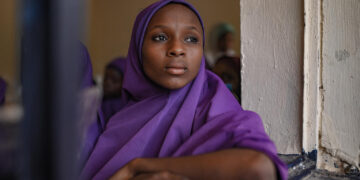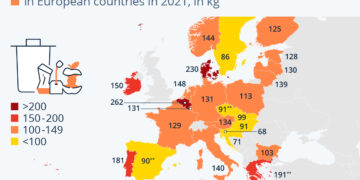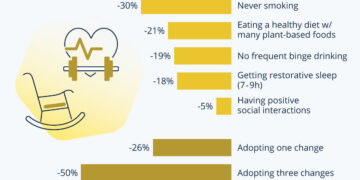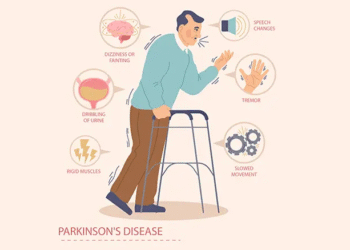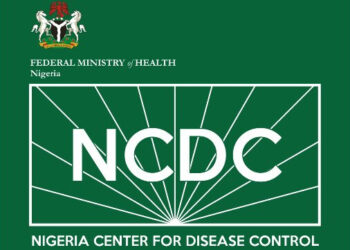Tuberculosis (TB) has continued to have a devastating impact on the people of Nigeria, despite global efforts to combat it, requiring immediate attention from all stakeholders. A country with the most populated human in Africa faces high TB infection rates and alarming mortality figures.
Nigeria bears a significant burden of tuberculosis, ranking sixth among nations with the highest number of TB cases globally. In 2021, the country contributed 4.4 percent to the total TB cases globally, according to data from the World Health Organization (WHO).
A recent report by the National Tuberculosis, Buruli Ulcer, and Leprosy Control Programme (NTBLCP) revealed that more than 18 Nigerians die from TB every hour.
Mrs. Itohowo Uko, Deputy Director of the NTBLCP in the Federal Ministry of Health, disclosed this information during an integrated media parley organized by Breakthrough Action Nigeria, in collaboration with the Health Writers Association of Nigeria (HEWAN). This emphasizes the urgent need for immediate intervention.
Also, the country’s Coordinating Minister of Health and Social Welfare, Prof. Muhammad Ali Pate at the 37th STOP TB Partnership Board Meeting in Brasilia, Brazil, announced that Nigeria diagnosed over 300,000 tuberculosis (TB) cases in 2023, marking the first time in its history that such a high number was recorded.
“In 2023, Nigeria diagnosed over 300,000 TB cases for the first time in its history, reducing the missing case gap and positioning the country to achieve its 2025 National Strategic Plan targets.
“At the 2023 UN High-level Meeting (UN HLM) on Universal Health Coverage (UHC), Nigeria reached about 70 percent of its cumulative target and approximately 90 percent of the 2022 target,” he said.
Minister Pate said that the country was also documenting strategic initiatives and best practices to address case-finding challenges in a high-burden country.
“The achievements in Nigeria’s TB control program would not have been possible without the support of partners such as USAID, GFATM, WHO, Stop TB Partnership, CDC, DoD, and Civil Society Organizations.
“The program staff, especially the front-line workers, were also recognized for their dedication in providing TB services, even during emergencies and crises,” he said.
The impact of TB extends beyond the health sector, hindering economic development, exacerbating poverty, and causing immense suffering for affected individuals and families. This is a harsh reality that Nigeria cannot afford to overlook.
Several challenges impede the fight against TB in Nigeria. Insufficient funding remains a critical issue, hindering the implementation of comprehensive prevention, detection, and treatment programs.
To effectively combat TB, increased resources must be allocated urgently. Adequate funding is crucial to strengthen healthcare infrastructure, expand diagnostic capabilities, and ensure the availability of quality treatment for all.
Public awareness and misconceptions about tuberculosis further exacerbate the problem. Stigma, fear, and misunderstandings often lead to delayed diagnosis and treatment initiation, resulting in more severe cases and increased transmission within communities.
To effectively combat this, public education campaigns must intensify efforts to dispel myths, raise awareness about the disease, and encourage prompt seeking of healthcare services. Collaboration with community leaders, civil society organizations, and the media can play a vital role in disseminating accurate information and overcoming these barriers.
Moreover, Nigeria’s inadequate healthcare infrastructure presents significant challenges in fighting TB. Limited and inaccessible diagnostic services contribute to delayed diagnoses and missed opportunities for early intervention.
To address this, urgent measures are needed to strengthen laboratory capacity, expand the availability of rapid and accurate diagnostic tools, and ensure equitable distribution across the country. Additionally, healthcare workers should receive specialized training to enhance their capacity for TB management and improve patient care.
Collaboration between the government, international partners, and civil society organizations is crucial in addressing the TB crisis. The government must prioritize TB within the national health agenda and develop a comprehensive strategy that covers all aspects of TB control, from prevention to treatment.
International partners should continue to provide financial and technical support to bolster Nigeria’s efforts, while civil society organizations can advocate for increased funding, raise awareness, and offer community-based support services.
Nigeria’s tuberculosis crisis demands urgent action. By prioritizing TB control and investing in comprehensive interventions, Nigeria can significantly reduce the burden of this disease, save lives, and pave the way for a healthier and more prosperous future for all its citizens.
The time to act is now, and by working together, we can overcome the challenges posed by tuberculosis and build a brighter future for Nigeria.
Written by Chukwuemeka Paschal












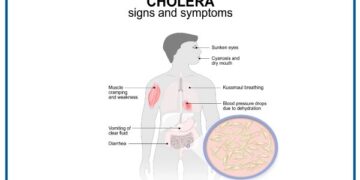





![Antimicrobial Resistance [AMR] in Hausa](https://healthtoday.com.ng/wp-content/uploads/2024/02/antimicrobial-resistance-AMR--360x180.jpeg)


